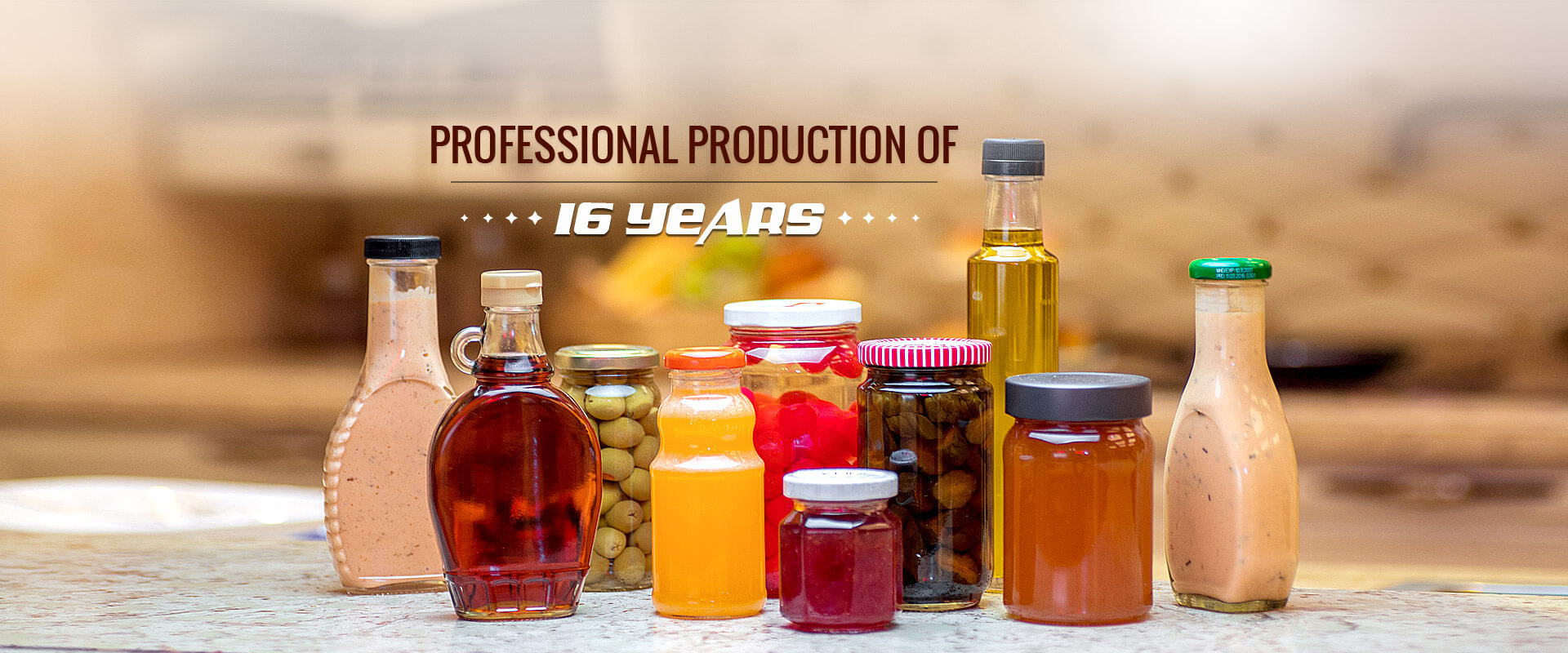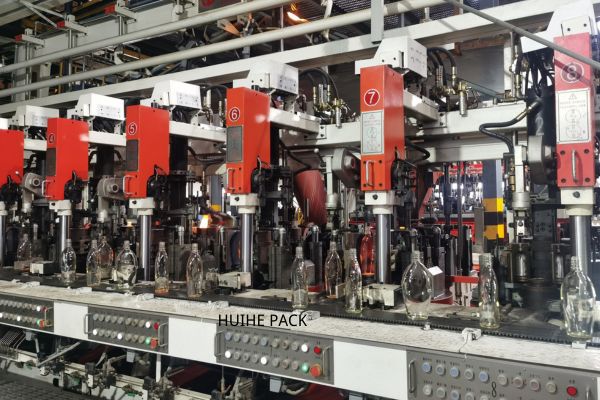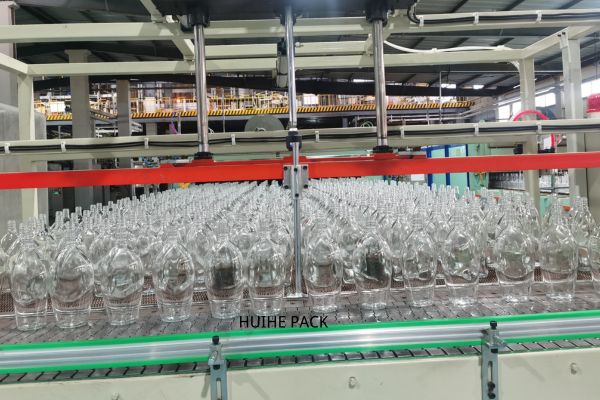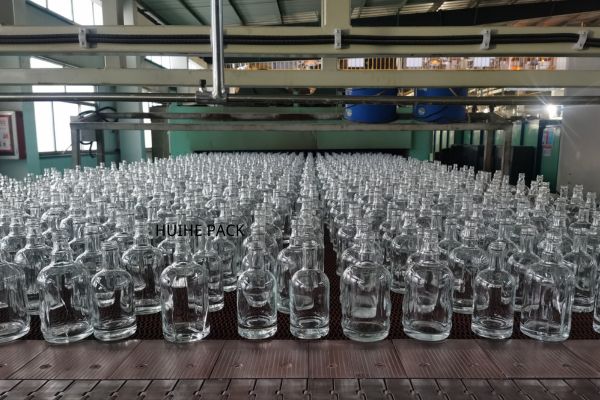
Glass bottles have great potential for reuse as an environmentally friendly and durable packaging solution. A well-made and maintained glass bottle can accompany us for many storage and carrying needs. However, every glass bottle does not have the same lifespan and the number of times it can be reused is influenced by several factors. In this article, we will explore the key factors that affect the number of times a glass bottle can be reused and provide some practical maintenance tips to help you maximize the life of your glass bottles and contribute to environmental protection.

Table of contents:
Why glass bottles can be reused?
How many times can a glass bottle be reused?
Benefits of Reusing Glass Bottles
Ways to extend the life of glass bottles
Which glass bottles are not suitable for reuse?
In conclusion
Glass bottles have great potential for reuse as an environmentally friendly and durable packaging solution. A well-made and maintained glass bottle can accompany us for many storage and carrying needs. However, every glass bottle does not have the same lifespan and the number of times it can be reused is influenced by several factors. In this article, we will explore the key factors that affect the number of times a glass bottle can be reused and provide some practical maintenance tips to help you maximize the life of your glass bottles and contribute to environmental protection.
The reason why glass bottles can be reused is mainly related to their material and physical properties, here are some key points:
Heat Resistance: Glass can withstand high temperatures and will not deform or release harmful substances at high temperatures like some plastic bottles. As a result, glass bottles can be safely used to contain hot water or to sterilize at high temperatures.
Chemical Stability: Glass is a very chemically stable material that does not react with most chemicals and therefore does not adsorb or release harmful substances like plastic, ensuring the safety and purity of the contents.
Impermeability: Glass is a non-permeable material that does not allow odors or liquids to permeate like some packaging materials, thus maintaining the original flavor and freshness of the contents.
Cleanability: Glass has a smooth surface that is not easily adhered to by dirt and can be thoroughly cleaned by conventional cleaning methods to remove bacteria and residue.
Durability: Glass is hard and not easily deformed, and can maintain its structure and function for a long time under normal use and proper maintenance.
Aesthetics: glass bottles are transparent and beautiful, and can be reused for a variety of occasions, such as drinking water, storage, decoration, and so on.

The number of times a glass bottle can be reused depends on a number of factors, including the material the bottle is made of, the manufacturing process, the care taken during use, and the way it is used. Generally speaking, if used properly, avoiding falls and strong impacts, glass bottles can be reused many times.
Here are some factors that may affect the number of times a glass bottle can be reused:
Strength of material: high-quality glass materials such as heat-resistant glass are more durable than ordinary glass.
Design: The thickness of the bottle and the construction of the mouth of the bottle can also affect its durability.
Frequency of use: Frequent use may accelerate wear and tear.
Cleaning practices: Proper cleaning and maintenance can extend the life of glass bottles.
Storage conditions: Avoiding high-temperature changes and chemicals can protect glass bottles.
With normal use and proper care, it is possible to reuse a glass bottle dozens or even hundreds of times. However, if it cracks or breaks during use, it should be stopped immediately to avoid safety risks.

Reusing glass bottles has multiple benefits, including environmental protection, economic benefits, and positive ecological impact. The following is a specific analysis:
Environmental benefits
Reduced resource consumption and waste generation: Reusing glass bottles reduces the need for new bottles, thus conserving natural resources and reducing the amount of waste generated. Recycling one ton of waste glass can save 0.2 tons of soda ash and 0.7 tons of quartz sand, effectively reducing the cost of glass products.
Reduces greenhouse gas emissions: By reducing the energy consumption required to produce new glass bottles, reusing glass bottles helps to reduce greenhouse gas emissions, thereby mitigating climate change.
Economic benefits
Reduce production costs: Companies can reduce raw material purchases and waste disposal costs by recycling and reusing glass bottles, thus improving economic efficiency.
Improve production efficiency: Reusing glass bottles can reduce waste and pollutant emissions during the production process and improve production efficiency.
Positive impact on the ecological environment
Promote the development of a circular economy: the reuse of glass bottles helps to form a closed-loop system, maximizing the use of resources and minimizing the discharge of waste.
Reducing the exploitation of primary resources: by recycling and reusing glass bottles, the exploitation and consumption of primary resources can be reduced and the ecological environment can be protected.
The methods to extend the service life of glass bottles mainly include reasonable use and maintenance, avoiding violent collisions and falling, avoiding long-term contact with corrosive substances, and regular cleaning and maintenance. The following are some specific recommendations:
Avoid collision: Avoid violent collision and falling to avoid breakage of the glass bottle.
Regular cleaning and maintenance: After each use, glass bottles need to be thoroughly cleaned and sterilized to ensure that there is no residue and microbial contamination inside the bottles.
Avoid using strong detergents: Try to avoid using too strong detergents or chemicals to clean the glass bottles, so as not to cause damage to the bottles.
While glass bottles are a durable and reusable container, there are some situations where they may not be suitable for reuse. Here are some types of situations where glass bottles are not suitable for reuse:
Damaged or cracked glass bottles: Any glass bottles that are cracked, chipped, or have been broken should not be reused as they may break completely during filling or cleaning and cause injury.
Glass bottles that are difficult to clean after food contact: If substances that are difficult to clean, such as certain gels or grease, adhere to the inside of the glass bottle, it may not be possible to clean them thoroughly, thus compromising the hygiene and safety of re-use.
Glass bottles containing hazardous chemicals: Some glass bottles may be specially coated or contain dangerous substances that may be released into food or beverages during re-use.
Glass bottles designed for single use: Some glass bottles may be designed to be thin or not strong enough for single use only and are not suitable for long-term reuse.
Glass bottles with degraded color: If the color of a glass bottle begins to deteriorate or peel off, this may indicate that the bottle has aged and its structural integrity may be compromised.
Glass bottles used to store hazardous substances: Glass bottles that were once used to store hazardous chemicals (e.g., certain detergents, pesticides, etc.) may not be suitable for reuse if they have not been properly cleaned and treated.
Non-food-grade glass bottles: Not all glass bottles are food-grade. Non-food-grade glass bottles may contain ingredients that are unsuitable for food contact.
Glass bottles with special applications: Some glass bottles may be designed for specific applications, such as laboratory bottles, and they may not be suitable for food or beverage storage.
The reuse of glass bottles not only has both economic and environmental benefits but is also one of the important ways to realize sustainable development. The reuse of glass bottles will be more widely used and popularized in the future, contributing to the building of a green, low-carbon, recycling economy and society.